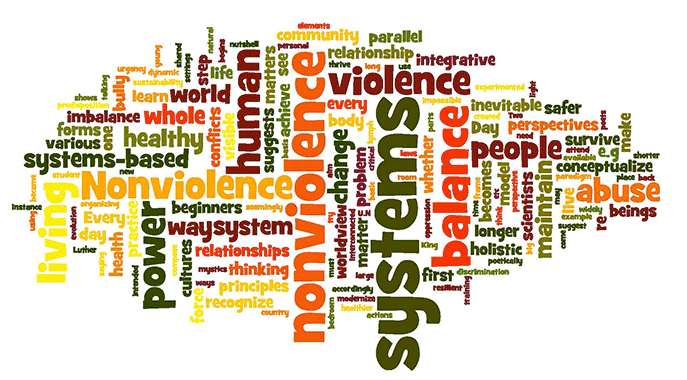Nonviolence Studies & Programs

Nonviolence Studies Certificate Program
Learn the strategies, tactics, and tools to help resolve problems without violence
This program encompasses a broad range of concepts grounded in nonviolence as philosophy and methodology guiding humanistic and democratic activities on all levels of human interactions. The courses focus on the advancement of peace building endeavors in every area of human engagement, including all kinds of human relationships, both personal and professional, as well as activities of social change-making and civic and political participation.
Careers
The skills learned in the nonviolence studies undergraduate certificate program can be applied to many careers, including:
- Crisis communication
- International diplomacy
- Psychology
- Anthropology
- Social work
- Education
Goals
To earn the Certificate in Nonviolence Studies (NVS), students will examine violence and nonviolence within a holistic context. Students will look at social justice issues as they relate to individuals, the community, and the world. Students will take a comprehensive and far-reaching view of issues as they exist within the context of the culture and the world that surrounds them–as they exist through time and within a continuum that includes the precursors that lead to actual physical violence. They will imagine ways to apply nonviolence methodology to achieve better "cultural and social health" similarly to the way "public health" officials apply a preventative, contextual model.
Upon completion of an undergraduate certificate in nonviolence studies, student will be able to demonstrate their understanding of:
- systems theory
- the differences between a mechanistic and organic worldview
- basic anthropological perspectives and concepts of holism
- history and theories of past and current nonviolence movements, including major writers
- their positionality in the social order and in what ways their life choices make a difference
their ability to apply:
- the concepts and methodologies of nonviolent resistance and direct action
- holistic thinking to human issues ranging from local to global
- the basic skills of conflict resolution, mediation, and arbitration
- critical thinking to real-world issues
Course curriculum (PDF) for the Nonviolence Studies Undergraduate Certificate